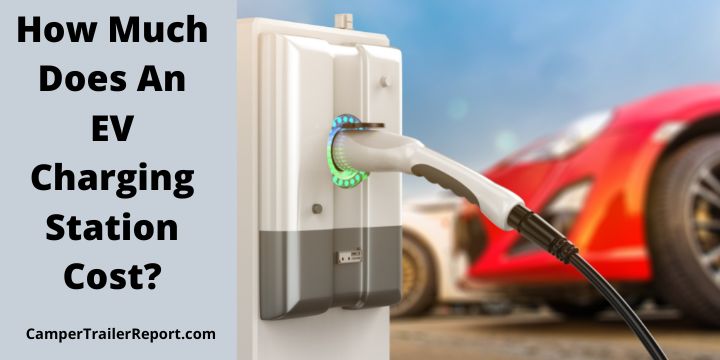
Renting an RV is a fantastic way to explore the great outdoors, but understanding the costs involved can help you plan your adventure without breaking the bank.
In 2025, RV rental costs vary widely based on factors like RV size, rental company, season, and additional fees. Here’s a detailed breakdown to help you budget for your trip.
1. Base Rental Rates
The base rental rate is the primary cost you’ll pay for an RV, which is typically charged per night. Here’s what you can expect:
- Class A RVs: $200 – $500 per night
- These luxurious motorhomes offer ample space and high-end amenities, making them the most expensive option.
- Class B RVs (Campervans): $100 – $300 per night
- Compact and easier to drive, these are ideal for couples or solo travelers.
- Class C RVs: $150 – $350 per night
- A popular choice for families, offering a balance of space and affordability.
- Travel Trailers: $50 – $150 per night
- These towable options are budget-friendly but require a suitable vehicle for towing.

2. Seasonal Pricing
RV rental rates fluctuate depending on the time of year:
- Peak Season (Summer): Expect to pay 20-50% more during summer months, especially around holidays like July 4th and Labor Day.
- Off-Season (Winter): Lower demand means discounted rates, with savings of up to 30-40% in many locations.
3. Mileage Fees
Most rental companies include a mileage allowance, but exceeding it can incur additional costs:
- Included Miles: Typically 100-200 miles per day are included in the base rate.
- Excess Mileage: $0.25 – $0.50 per mile for overages. Plan your route carefully to minimize extra charges.
4. Generator Use Fees
Using the RV’s generator may come with additional costs:
- Included Hours: Many rentals include 2-4 hours of generator use per day.
- Excess Hours: $3 – $5 per hour for extra use. This can add up quickly if you rely heavily on the generator for air conditioning or appliances.
5. Insurance Costs
Rental companies typically require insurance coverage for their RVs. Costs vary:
- Daily Insurance Fees: $15 – $50 per day, depending on the coverage level.
- Personal Coverage: Check if your car insurance or credit card provides RV rental coverage to save money.
6. Additional Fees
Be aware of extra charges that can increase your total cost:
- Cleaning Fees: $50 – $200 if the RV isn’t returned in clean condition.
- Dumping Fees: $25 – $75 for not emptying the waste tanks.
- Pet Fees: $50 – $150 for traveling with pets.
- Late Return Fees: $50 – $100 per hour if you’re late returning the RV.
7. Fuel Costs
RVs are less fuel-efficient than cars, so fuel will be a significant expense:
- Average MPG: 8-12 miles per gallon, depending on the RV type.
- Fuel Prices: Budget for gas prices in your travel area; diesel models may cost more to refuel.
8. Optional Extras
Many rental companies offer add-ons for convenience:
- Kitchen Kits: $50 – $150, including cookware, utensils, and dishes.
- Bedding Kits: $30 – $100, including sheets, blankets, and pillows.
- Bike Racks: $25 – $75 for outdoor enthusiasts.
9. Total Estimated Costs
For a 7-day trip, here’s a rough estimate of total costs:
- Class A RV: $2,000 – $4,000
- Class B RV: $1,000 – $2,500
- Class C RV: $1,500 – $3,000
- Travel Trailer: $700 – $1,500
These estimates include base rental rates, mileage, generator use, and additional fees.
10. How to Save on RV Rentals
- Book Early: Early reservations often come with discounts.
- Travel Off-Season: Save money by renting during less popular times of the year.
- Compare Companies: Use websites like Outdoorsy or RVshare to find competitive rates.
- Negotiate: Some rental companies may be open to negotiating rates, especially for longer trips.
Final Thoughts
Renting an RV in 2025 offers incredible flexibility and adventure, but it’s essential to understand the costs involved. By budgeting carefully and planning ahead, you can enjoy the RV lifestyle without unexpected financial surprises. So, pack your bags and hit the road—adventure awaits!
Read More: RV Electrical – Everything You Need to Know (Guide)


